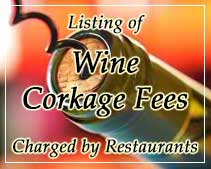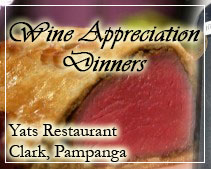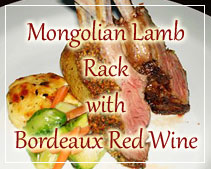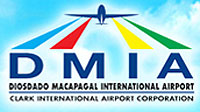About Wines from Bordeaux Best wine supplier in Philippines discusses wine related topics Bordeaux Loses Prestige Among Younger Wine Lovers – 11July15
THE hyperbole over 2009 Bordeaux began building even before the harvest last fall. Ripples of praise grew into waves this spring as critics and the trade descended on Bordeaux for the annual ritual of tasting the most recent vintage from barrels. Their ecstatic reviews reverberated through Britain, which takes its claret extremely seriously. They rang out in Hong Kong, the leading edge of what Bordeaux hopes will be a huge Asian market.
In the United States, the huzzahs resonated with collectors and wine investors, and with high-end restaurants whose clients donŌĆÖt mind spending hundreds or even thousands of dollars on renowned bottles. These people paid attention when Robert M. Parker Jr., the wine critic whose opinions most influence Bordeaux prices, wrote, ŌĆ£For some M├®docs and Graves, 2009 may turn out to be the finest vintage I have tasted in 32 years of covering Bordeaux.ŌĆØ
But for a significant segment of the wine-drinking population in the United States, the raves heard around the world were not enough to elicit a response beyond, perhaps, a yawn. For these people, Bordeaux, once the worldŌĆÖs most hallowed region and the standard-bearer for all fine wines, is now largely irrelevant.
What happened? Plenty of Bordeaux is still consumed in the United States. In 2009, 1.29 million cases of Bordeaux wine were imported, accounting for 0.46 percent of all still wines, domestic and foreign, distributed in the country. While this percentage rises and falls year to year, it is still a far cry from its highs in the mid-1980s. Bordeaux shipments accounted for 1.69 percent of all still wines distributed in the United States in 1985, for example.
While the drop stems from far more competition in the lower-priced market, it also reflects a shift in the demographic of Bordeaux aficionados. For young Americans in particular, Bordeaux has become downright unfashionable.
Not so long ago, young wine-loving Americans were practically weaned on Bordeaux, just as would-be connoisseurs had been for generations. It was the gateway to all that is wonderful about wine. Now that excitement has gone elsewhere, to Burgundy and the Loire, to Italy and Spain. Bordeaux, some young wine enthusiasts say, is stodgy and unattractive. They see it as an expensive wine for wealthy collectors, investors and point-chasers, people who seek critically approved wines for the luxury and status they convey rather than for excitement in a glass.
ŌĆ£The perception of Bordeaux for my generation, itŌĆÖs very Rolex, very Rolls-Royce,ŌĆØ said Cory Cartwright, 30, who is a partner in Selection Massale, a new company in San Jose, Calif., that imports natural and traditional wines made by small producers, and who writes the Saign├®e wine blog. ŌĆ£I donŌĆÖt know many people who like or drink Bordeaux.ŌĆØ
But the lack of interest is not just a question of perception. Nor is it solely a reflection of the weak economy, which drove down sales of most higher-priced wines in the last two years.
The more troubling sign for Bordeaux is that it has largely lost the loyalty of people like sommeliers and neighborhood wine shop proprietors, who can help build an audience for wines. The high-end, big-name wines will always have a market, but the less expensive, less familiar names, the natural points of embarkation for young wine explorers, may not fare as well without the support of those crucial intermediaries.
ŌĆ£I donŌĆÖt know any young sommelier who IŌĆÖve encountered in the last 15 years who is a Bordeaux hound,ŌĆØ said Paul Grieco, an owner of the restaurant Hearth as well as two innovative wine bars, Terroir and Terroir Tribeca, all in Manhattan. Mr. Grieco has been a mentor for many young sommeliers. He himself learned about fine wine by drinking Bordeaux. Nonetheless, at his wine bars, he serves 50 wines by the glass, and not one is a Bordeaux. His shift has left him with mixed feelings.
ŌĆ£I think, ŌĆśIŌĆÖm a history guy, how can I not revere Bordeaux?ŌĆÖ ŌĆØ he said. ŌĆ£If even one person came in and said, ŌĆśI want a glass of Bordeaux,ŌĆÖ I might think I really have to serve a Bordeaux. But not one person has said that. Not one! ThatŌĆÖs pretty sad.ŌĆØ
For many younger sommeliers and wine lovers, the new standard of excellence is Burgundy.
Unlike Bordeaux, where many of the best-known chateaus are run by corporations or wealthy absentee owners, Burgundy is full of estates, including many of the leading ones, that are essentially small businesses. Dealing with Bordeaux often requires working with middle management and marketing specialists. ItŌĆÖs much easier to visit a Burgundian estate and find the one person who has dirt on the boots, wine on the hands and a name on the bottle.
Source: http://www.nytimes.com/2010/05/19/dining/19pour.html?_r=3
Philippines Clark Freeport offers attractive investment opportunities. Assistance in law, taxes and other business and investment matters can be obtained from Clark Business and Investment Assistance.
Clark Philippines operates under a slightly set of rules from the rest of the country. There are many advantages but as usual, there are also areas that investors need to be well apprised to avoid unnecessary problems.
Clark Freeport Zone offers many attractive incentives that collectively make it a good business investment opportunity as well as a wonderful choice for semi- or full-retirement. In addition to the tax incentives of a Freeport Zone, Clark has a remarkably good record in terms of crime rate. In fact, there is no recollection of any major crimes inside Clark Freeport Zone at all and even minor crimes are rare and far between. Whereas traffic and pollution are two major deterrents to retiring, living or setting up a business in major cities in the Philippines such as Manila and Cebu, Clark Freeport are not marred by these problems. Clark is blessed by good infra structures left behind by the Americans built when Clark was their largest foreign airbase.
Investors are well advised to obtain legal counseling as the first step of their exploration of investment opportunities in Clark Freeport. Clark Business and Investment Assistance is well experienced to offer this service to would-be investors ŌĆō called locators. This outfit can also address tax concerns but more importantly helps investors navigate the tricky waters of finalizing a deal. Clark Pampanga is a fast growing city and businesses in Manila are making their move to either expand into or relocate to Clark Philippines.
This web site contains articles and information that will be helpful to visitors, residents and tourists traveling out of town from Manila on a short getaway to Subic, Angeles City, Pampanga and Clark Philippines. There are several web sites that contain information that might also be pertinent to what is happening in North Luzon, Subic, Tarlac, Pampanga, Clark Freeport Philippines.
Wedding couples looking for wedding reception venues and beach wedding venues can log on to this Philippines Wedding Venue web site for free information and assistance:
For assistance with lodgings, accommodations, hotels and resorts near Manila in Subic, Pampanga, Angels City and Clark Philippines log on to http://www.HotelClarkPhilippines.com
While in Clark, one might as well add to the itinerary a visit to the famous Clark Wine Center, the largest wine shop in Philippines which offers over 2000 selections of fine vintage wine from all wine regions, vintages spanning over 50 years covering all price ranges.
http://www.ClarkWineCenter.com
If this article about Clark is useful to you, please click here to contact us to tell us what more you wish to know about this article or Clark Philippines, which can be something about Clark investment, about Clark resorts, about Clark Swimming and Leisure or simply general news about Clark.
Please send questions to Editor@ClarkPhilippines.com. Leave your name, email address, contact numbers and we will get back to you as soon as possible. Information received will not be disclosed.













